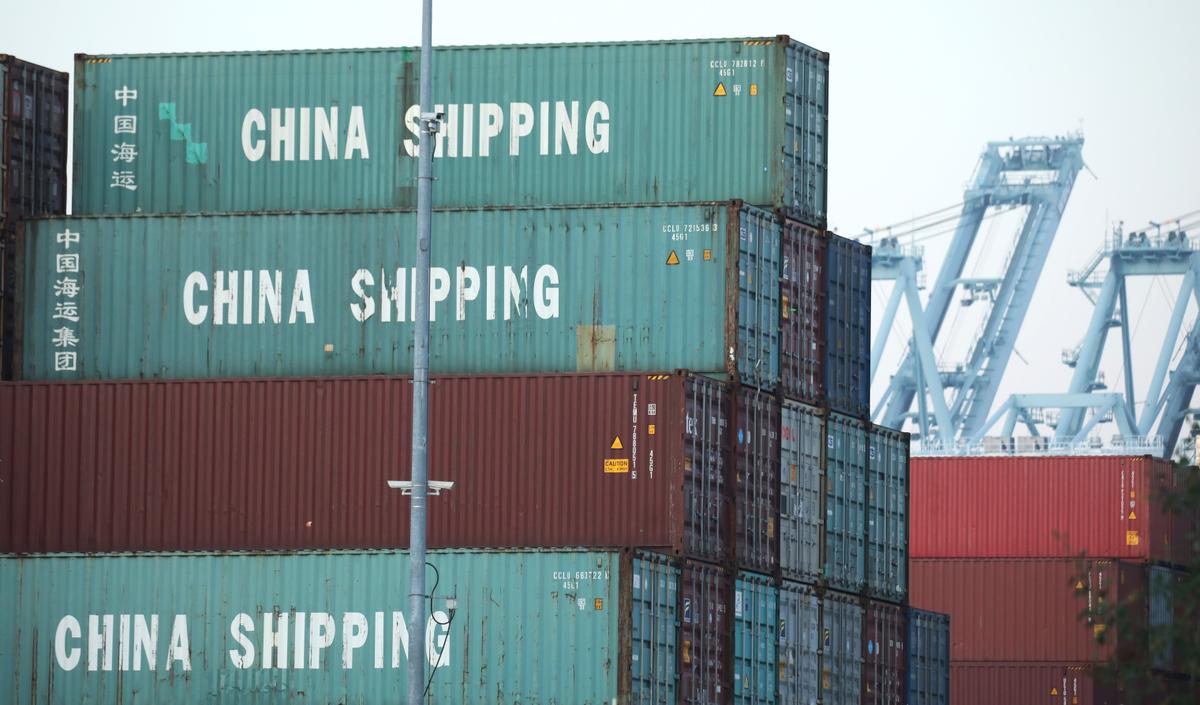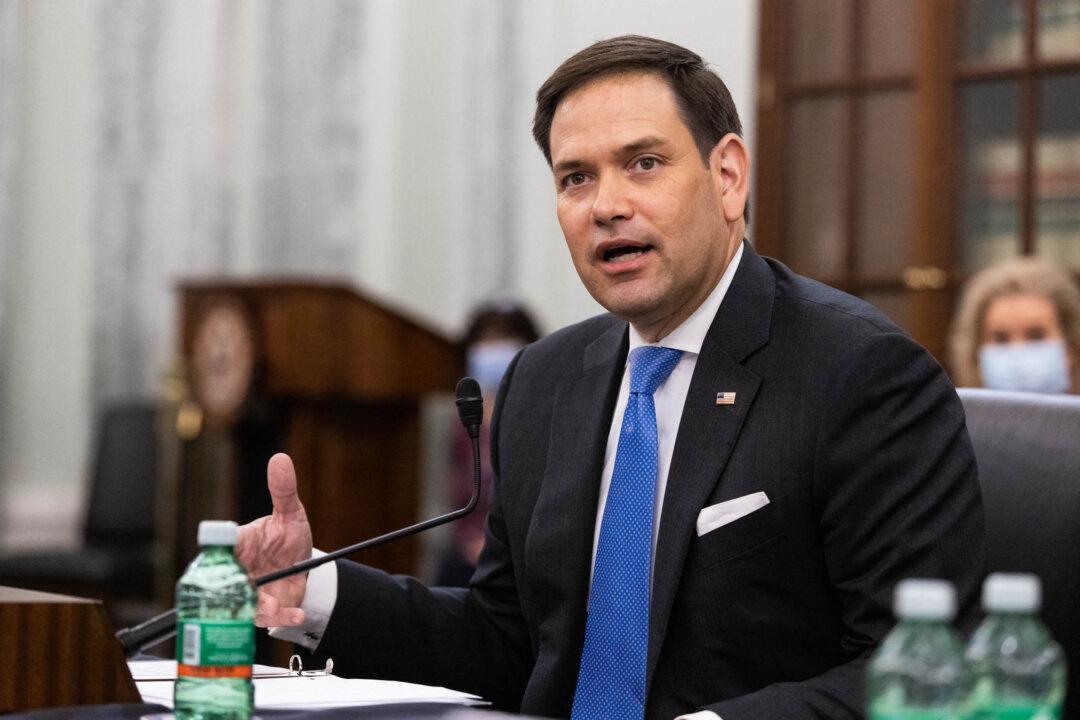“Whatever we did to make the Chinese angry, we have to stop doing it, because it’s hurting us.”
That was an argument that Sen. Marco Rubio (R-Fla.) heard from an airplane maker executive recently after China stopped buying their planes and switched to a European supplier. The company blamed the switch on U.S. tariffs on Chinese goods.
U.S. companies’ dependence on the Chinese market is one leverage that the communist regime uses to pressure the U.S. administration to adopt policies friendly toward Beijing, according to Rubio. Beijing’s goal is to pursue its military ambitions, be it the takeover of Taiwan or to supplant the United States as the sole global superpower, unimpeded by Washington, he said.
“Now, not only does that threaten American policymakers, but they know that the businesses that rely on those things are going to be screaming at the door of the Capitol saying: ‘This is hurting our economy.’ I see it now.”
The airplane maker that Rubio talked to was “just one industry and one company.”
“Imagine that across multiple industries, the impact that would have on our economy and the impact that would have on policymakers. I’m telling you policymakers would respond to that,” Rubio said. “If that air maker is in your state and is one of the largest employers in your state, you as a senator are going to go over there and argue on their behalf—and by doing so, arguing on behalf of the Chinese position on that issue.”
The “leverage China potentially has over America and the West is extraordinary,” he said.
“That leverage, if we don’t change course, will only grow exponentially in the years to come and put us at a level of vulnerability this nation has never faced in the modern era.”
Until recently, communist China had been hiding its plans to supplant the United States as the world’s next superpower by using the argument that “they were a poor developing country” and “no threat to anyone,” he said.
Beijing has now cast off that veneer. However, in the United States and the world at large, there hasn’t been a “sea change” in perception or the level of urgency necessary to confront the threat, according to Rubio.

Weaponizing the Money
“The Chinese have calibrated the world’s reaction to everything,” from their military aggression to their human rights atrocities, according to Rubio.“They believe that ultimately, society is too busy around the world to care too much about these things,” he said. “Yeah, they‘ll complain, they’ll pass some resolutions, there'll be some protests, but ultimately, they’re not going to walk away from the benefits they gained by having a relationship with China.”
One of the most stunning examples of the influence resulting from Chinese money can be found in the film industry, Rubio said.
“No Hollywood studio will produce a movie that has a Chinese villain, or [the] Chinese Communist Party, doing anything bad,” he said. “You can’t produce that movie, because they won’t show it in China.”
Abetting China’s Demands
The Chinese regime’s influence doesn’t stop at the entertainment sector. The COVID-19 pandemic in 2020 has exposed how much the West depends on China, which supplies about 90 percent of certain antibiotics to the United States and contributes to roughly three-quarters of the world’s rare earth mineral exports, such as lithium, a crucial element for batteries used in mobile phones, laptops, and electric vehicles.“Look at our supply chains right now. They’re disrupted because of a pandemic. Imagine that they decide to deny us the same things, but not because of a pandemic,” Rubio said.
Even though the world has now cast its focus on Russia over its war on Ukraine, the threat that Moscow presents to the international community is nowhere comparable to that of Beijing, according to Rubio.
“On a scale of one to 10, China’s a 10, and Russia is a three,” he said.
Plenty of U.S. companies are apparently willing enough to go along with the Chinese regime’s censorship demands, even though that isn’t necessarily consistent with their domestic positions.
“You can hold up a sign about anybody. You can hold up a sign saying ‘America is evil.’ But you can’t hold up a sign saying what China’s doing to Tibet or Falun Gong or Uyghurs, or what they did to Hong Kong. You can’t talk about any of these things,” Rubio said.
This is because these companies’ profits in China would then be jeopardized, he said.
But whatever benefits that U.S. companies derive from Chinese concessions may not last.
“Once the Chinese figure out how to do it on their own, they kick those companies out and put them out of business,” he said, noting that foreign companies who do business with China are “more focused on the short term profits.”
It’s a trend that the lawmaker wishes to reverse.
From the standpoint of policymakers, that means being clear about whose interests are on the line.
“We should not be building public policy on what these companies think is in their best interest. We have to be acting in the best interest of the country,” Rubio said. “Just because some company or some chamber of commerce comes up to D.C. and says this is bad for American business doesn’t necessarily mean this is bad for America. It might be the right thing to do for our country, even if it may harm one or two corporations.”






